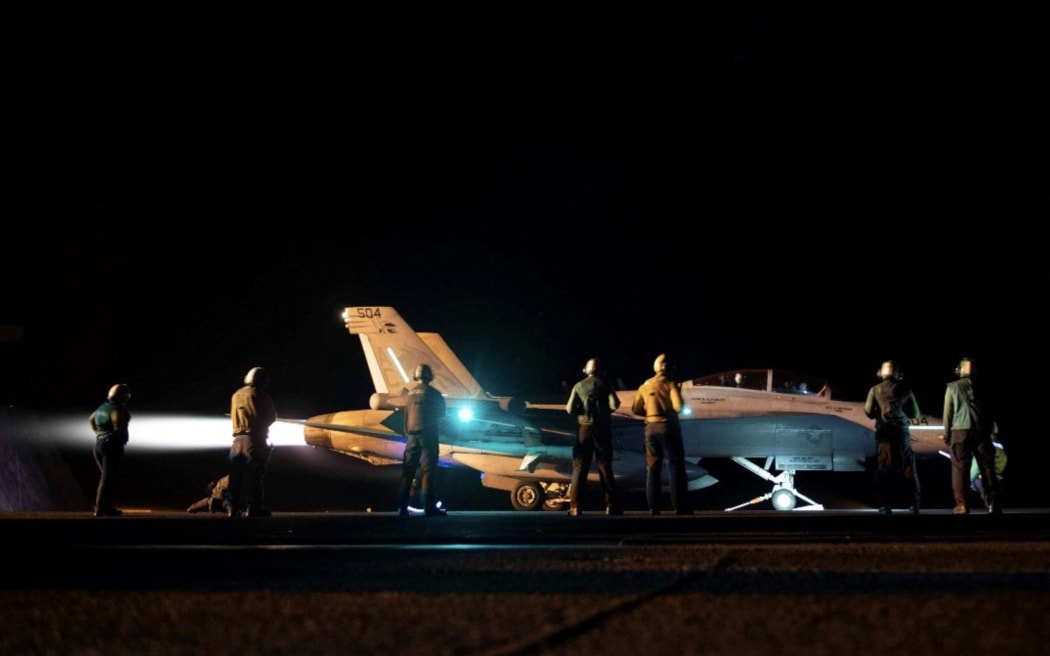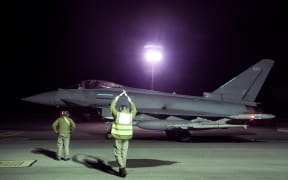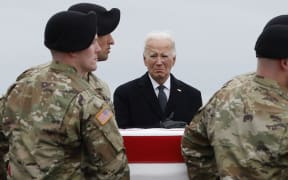By Sam Cabral, for BBC News, Washington

In this photo released by the US military's Central Command on 3 February 2024, US Central Command forces conducted strikes against 36 Houthi targets at 13 locations in Iranian-backed Houthi-controlled areas of Yemen. Photo: AFP PHOTO / HANDOUT / CENTCOM
The US carried out more strikes against Houthi missiles in Yemen on Sunday, US Central Command (Centcom) said in a statement on X.
Centcom said US forces struck a land-attack cruise missile and four anti-ship missiles that "were prepared to launch against ships in the Red Sea".
The latest military action comes a day after US-UK strikes on Houthi targets.
It all follows continued attacks by the Iran-backed Yemeni group on military and shipping vessels in the Red Sea.
The Houthis' attacks have forced major shipping companies to avoid the waterway, impacting international trade.
Egypt has said its revenue from the Suez Canal plunged by almost half in January, with the number of ships travelling through the key trade artery last month down by more than a third.
Saturday's strikes lit up the night sky in the south of Yemen's capital city of Sana'a, with one human rights activist and local resident telling the BBC houses were shaking.
Houthi officials struck a defiant tone in response to the US-led strikes - and vowed to respond.
Reacting to Saturday's strikes, the group's military spokesman, Yahya Sarea, wrote on X: "These attacks will not deter us from our moral, religious, and humanitarian stance in support of the resilient Palestinian people in the Gaza Strip and will not go unanswered or unpunished."
Earlier, the White House has warned that its air strikes on Iran-backed targets in Iraq and Syria are just "the beginning, not the end" of its response to Iran.
National security adviser Jake Sullivan told US media on Sunday that "there will be more steps".
The US is responding to the deaths of three soldiers in an enemy drone attack on a military base in Jordan last week.
Iran has denied the attack involvement and its affiliate, the Islamic Resistance in Iraq, has claimed responsibility.
The US accuses Tehran of having its "fingerprints" on the attack and said the drone was Iranian-made.
In a letter to Congress on Sunday - which under law he is required to send within 48 hours of military action - President Joe Biden said the retaliatory strikes on Friday had targeted facilities used by Iran's armed forces - the Islamic Revolutionary Guard Corps (IRGC) - and militia groups linked to the IRGC.
The IRGC is believed to have armed, funded and trained Islamic Resistance in Iraq.
Biden said that include sites used for "command and control, weapons storage, training, logistics support, and other purposes".
And he added that the strikes aimed to deter these groups from further attacks, and were taken in a way "to limit the risk of escalation and avoid civilian casualties".
He also said that he would "direct additional measures, including against the IRGC and IRGC-affiliated personnel and facilities, as appropriate".
The American retaliation is also drawing growing condemnation from others in the region, including from the Iraqi and Syrian governments.
"No warning was given during the strike or the night of the strike," Farhad Alaaldin, a senior adviser to Iraq's prime minister, told the BBC's Newshour programme on Sunday about Friday's strikes.
He added that the "issue of warning or no warning makes no difference to the fact of the matter that Iraq is a sovereign state".
A crowd gathered in Baghdad on Sunday to mourn the deaths of 17 pro-Tehran militia members in the US air strikes.
The group chanted "America is the greatest devil" and held aloft pictures of the victims as they followed a fleet of ambulances carrying their bodies.
Oman's foreign minister also spoke on Sunday to express his "grave concerns over the continuous escalation in the region", in a statement shared with the Oman News Agency.
Badr Albusaidi questioned the effectiveness of US retaliatory attacks, noting that "such actions compromise the region's safety, stability, and efforts to tackle challenges like violence and extremism".
Washington believes the strikes have "had good effect in degrading militia capabilities", Sullivan said on Sunday.
He said the US is not looking to wage an open-ended military campaign in the Middle East but "is prepared to deal with anything that any group comes" at them with.
But Sullivan declined to say whether the US had ruled out strikes inside Iran.
Since the strikes in Iraq and Syria on Friday, there has been one attack on American forces, a US defence official told the BBC.
The attack in question targeted US forces based at Euphrates in Syria using rockets. The official said there were no injuries or damage.
The US Secretary of State Blinken is currently en route to the region on a trip that will include stops in Israel, Egypt, Qatar, Saudi Arabia and the West Bank.
A hostage deal with Hamas that gets a pause in the hostilities in Gaza will be his "top priority", Sullivan said on Sunday.
"We are going to press for it relentlessly" but the ball is in Hamas's court, he said.
- This story was first published by the BBC.




